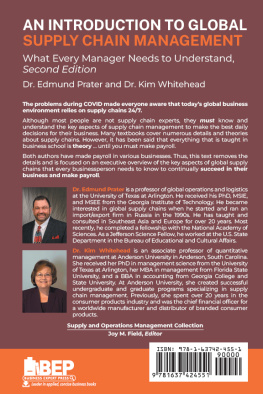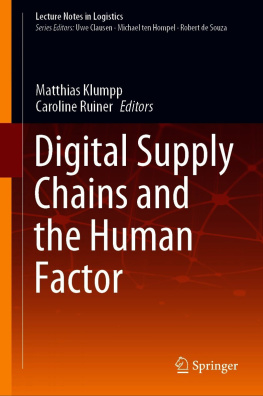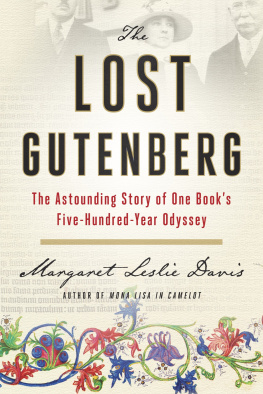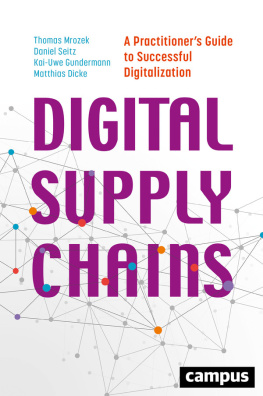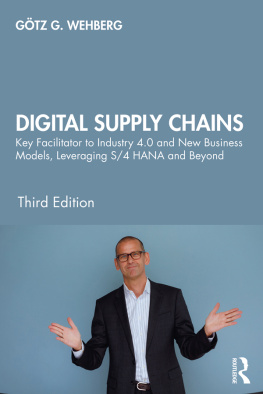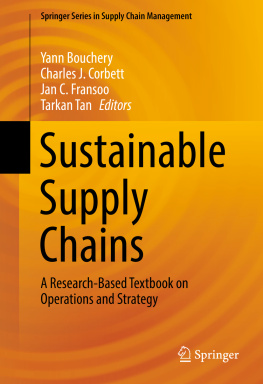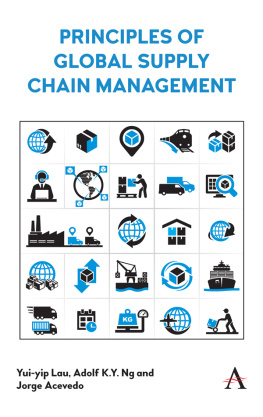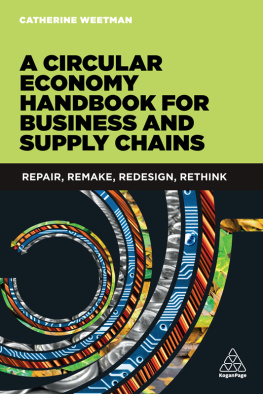Leslie Davis Burns - Stories of Fashion, Textiles and Place: Evolving Sustainable Supply Chains
Here you can read online Leslie Davis Burns - Stories of Fashion, Textiles and Place: Evolving Sustainable Supply Chains full text of the book (entire story) in english for free. Download pdf and epub, get meaning, cover and reviews about this ebook. year: 2021, publisher: Bloomsbury Publishing, genre: Business. Description of the work, (preface) as well as reviews are available. Best literature library LitArk.com created for fans of good reading and offers a wide selection of genres:
Romance novel
Science fiction
Adventure
Detective
Science
History
Home and family
Prose
Art
Politics
Computer
Non-fiction
Religion
Business
Children
Humor
Choose a favorite category and find really read worthwhile books. Enjoy immersion in the world of imagination, feel the emotions of the characters or learn something new for yourself, make an fascinating discovery.
- Book:Stories of Fashion, Textiles and Place: Evolving Sustainable Supply Chains
- Author:
- Publisher:Bloomsbury Publishing
- Genre:
- Year:2021
- Rating:3 / 5
- Favourites:Add to favourites
- Your mark:
- 60
- 1
- 2
- 3
- 4
- 5
Stories of Fashion, Textiles and Place: Evolving Sustainable Supply Chains: summary, description and annotation
We offer to read an annotation, description, summary or preface (depends on what the author of the book "Stories of Fashion, Textiles and Place: Evolving Sustainable Supply Chains" wrote himself). If you haven't found the necessary information about the book — write in the comments, we will try to find it.
Stories of Fashion, Textiles and Place: Evolving Sustainable Supply Chains — read online for free the complete book (whole text) full work
Below is the text of the book, divided by pages. System saving the place of the last page read, allows you to conveniently read the book "Stories of Fashion, Textiles and Place: Evolving Sustainable Supply Chains" online for free, without having to search again every time where you left off. Put a bookmark, and you can go to the page where you finished reading at any time.
Font size:
Interval:
Bookmark:
Stories of Fashion, Textiles, and Place
Evolving Sustainable Supply Chains
ALSO AVAILABLE FROM BLOOMSBURY
A Practical Guide to Sustainable Fashion
Alison Gwilt
Designing Fashions Future
Present Practice and Tactics for Sustainable Change
Alice Payne
Doing Research in Fashion and Dress
Yuniya Kawamura
Fashion Fibers
Designing For Sustainability
Annie Gullingsrud
Global Perspectives on Sustainable Fashion
Alison Gwilt, Alice Payne and Evelise Anicet Ruthschilling
Introducing Fashion Theory
From Androgyny to Zeitgeist
Andrew Reilly
Sustainability and Social Change in Fashion
Leslie Davis Burns
Sustainability and the Social Fabric
Europes New Textile Industries
Clio Padovani and Paul Whittaker
Sustainable Fashion: Whats Next?
A Conversation about Issues, Practices and Possibilities
Janet Hethorn and Connie Ulasewicz
The Business of Fashion
Designing, Manufacturing, and Marketing
Leslie Davis Burns and Kathy K. Mullet
The Dangers Of Fashion
Towards Ethical and Sustainable Solutions
Sara B. Marcketti and Elena E. Karpova
Stories of Fashion, Textiles, and Place
Evolving Sustainable Supply Chains
Leslie Davis Burns Jeanne Carver


Leslie Burns and Jeanne Carver met in 2008 when Jeanne was working on a grant application to the US Department of Agriculture to provide financial assistance for creating a ready-to-wear apparel collection with wool raised on her Imperial Stock Ranch in central Oregon, USA. At the time Leslie was a professor of Apparel Design and Merchandising at Oregon State University (OSU). Jeanne reached out to colleagues at OSU for names of professors who might assist with the grant proposal. As Jeanne tells the story, I asked several people at OSU including the president of the University and dean of the College of Agricultural Sciences and they all said You need to talk with Leslie Burns. Jeanne invited Leslie to meet with her and designer, Anna Cohen, at the Imperial Stock Ranch. Although they came from different backgrounds and areas of expertise, Leslie and Jeanne immediately connected around shared philosophies on sustainability and responsible supply chains. After this initial meeting, Leslie and Jeanne kept in touch, sharing highlights and challenges in their respective career journeys. In 2018, Leslie was working on the book Sustainability and Social Change in Fashion (2019, NY: Fairchild Books/Bloomsbury Publishing), and wanting to include in-depth interviews with industry leaders. She immediately thought of Jeanne and her work around creating a regional and sustainable supply chain for wool. As Leslie reflects:
After visiting the ranch and interviewing Jeanne I remember telling her someone needs to tell your story its amazing and so many could learn from your experiences! I thought about other companies that I had connected with in the process of writing this book and the journeys of their respective leaders and how a book about these journeys would be such a great learning tool.
Jeanne mentioned that she had already started writing the story of Imperial Stock Ranch. When Leslie read this early draft, she teared up; the writing was beautiful, passionate, and engaging. As an educator and scholar, Leslie knew the stories of the journeys of successful textile, home fashions, and apparel companies that had created sustainable supply chains needed to be told. She also knew that Jeannes skill in storytelling would result in a compelling book. As a complement to Jeannes skills, Leslie is an experienced author of scholarly work, including several books about the global fashion industry and sustainability. A collaboration that combined their respective talents seemed natural. Leslie and Jeanne talked more about a common thread that would weave through the stories and came to the realization that many of the companies were founded because of place, were grounded in place, and that their success was reflected in their values honoring the people and environment of a particular place. With this theme in mind, they contacted companies to see if they would be willing to have their stories told as part of this book, the result being the five companies included: Imperial Stock Ranch and Shaniko Wool Company, Angela Damman Yucatn, Tonl, Indigenous Designs, and Harris Tweed. The chapters were written based on in-depth research and personal interviews with founders, employees, artisans, and partners of each of the companies. Leslie and Jeanne conducted interviews with individuals at each of the companies and, when possible, visited the operations of the companies. The narratives of the five companies describe personal and professional journeys that resulted in creating and maintaining sustainable supply chains, representing a combination of industry best practices with a focus on environmental, social, cultural, and economic sustainability. Much can be learned from the narratives. In particular, the development and evolution of supply chains that both create and reflect valuesvalues around place, people, and productinspiring all of us to be part of a more environmentally, socially, and culturally sustainable fashion system.
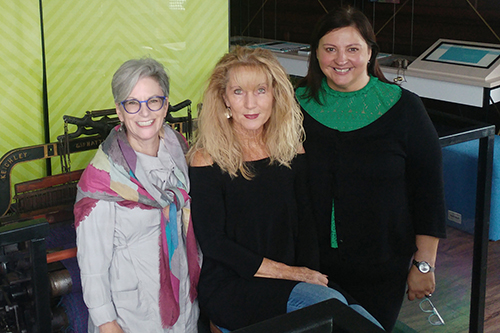
Figure 0.1Left to right, the authors Leslie Burns and Jeanne Carver, pictured with Lorna Macaulay, CEO of the Harris Tweed Authority (HTA). Photo courtesy of the HTA.
Leslie and Jeanne are grateful, honored, and humbled to write the stories of these companies and their respective founders, leaders, and artisan partners. Individuals were generous with their time and expertise, and this book would not have been possible without their willingness to open their hearts and share their passions, struggles, and successes. Leslie and Jeanne grew as scholars and writers through the warmth and genuine engagement of all involved.
Leslie will forever be grateful for the experience of meeting with Jeanne that first time and for the friendship and partnership that emerged and flourished over the years. Leslie was inspired by Jeannes authentic and passionate skill at storytelling, conducting interviews, and building relationships. Leslies journey as a scholar around sustainability in the fashion industry has been supported and encouraged by many kindred spirits in academia and industry. As a scholar she aspires to build on the work of others in moving the body of work and industry practices forward. As such, Leslie acknowledges and appreciates the important work of the many scholars and industry leaders who have and continue to contribute to changing the global fashion system. Leslie would also like to thank her husband, Bill Boggess, for his support of this project, including, among a host of contributions, driving to loomsheds in the Outer Hebrides, asking relevant questions about sustainable agricultural practices for growing henequn, and being a sounding board for themes that emerged from the narratives.
Jeanne feels tremendous gratitude to Leslie for giving her the opportunity to be involved in this project. Jeanne does not think of herself as a writer, but simply as a ranch wife who is willing to take on any challenge needed to support their rural ranch life. Jeanne was motivated to work in textiles and fashion in order for sheep to remain on the landscape grounding the resulting products to their place of origin. That decision became an odyssey, and the lessons learned enriched her life and brought ever more inspiration. Leslie was someone she reached out to for textile guidance and mentorship, when challenges sent her down a fork in the road that was unfamiliar. Professionals like Leslie helped shape her journey, and Jeanne is indebted to her for the wisdom, experiences, and guidance that influenced her path.
Next pageFont size:
Interval:
Bookmark:
Similar books «Stories of Fashion, Textiles and Place: Evolving Sustainable Supply Chains»
Look at similar books to Stories of Fashion, Textiles and Place: Evolving Sustainable Supply Chains. We have selected literature similar in name and meaning in the hope of providing readers with more options to find new, interesting, not yet read works.
Discussion, reviews of the book Stories of Fashion, Textiles and Place: Evolving Sustainable Supply Chains and just readers' own opinions. Leave your comments, write what you think about the work, its meaning or the main characters. Specify what exactly you liked and what you didn't like, and why you think so.


